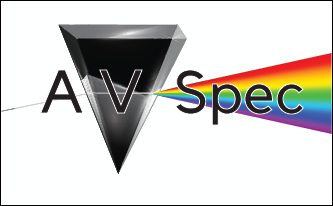Increase Astronomical Discoveries by Storing Your Spectroscopic Observations with AVSpec
Stella Kafka American Meteorological Society
This post is adapted from an AAVSO press release:
 A new era of variable star astronomy starts as the American Association of Variable Star Observers (AAVSO) now welcomes spectral observations from the AAVSO community. The new AAVSO Spectroscopic Database (AVSpec) offers the opportunity for amateur and professional astronomers worldwide to participate in scientific projects using their spectroscopic equipment. Alongside light-curve data in AAVSO’s photometric database, spectra will provide new insights on the properties of variable stars and opportunities for more exciting discoveries. The database is “open data,” which means it is free of charge and anyone can access AVSpec to view and download the data contributed by AAVSO observers.
A new era of variable star astronomy starts as the American Association of Variable Star Observers (AAVSO) now welcomes spectral observations from the AAVSO community. The new AAVSO Spectroscopic Database (AVSpec) offers the opportunity for amateur and professional astronomers worldwide to participate in scientific projects using their spectroscopic equipment. Alongside light-curve data in AAVSO’s photometric database, spectra will provide new insights on the properties of variable stars and opportunities for more exciting discoveries. The database is “open data,” which means it is free of charge and anyone can access AVSpec to view and download the data contributed by AAVSO observers.
Beginner to experienced spectroscopists are encouraged to submit data to AVSpec. Crucial data can be observed and uploaded to the databases with and without high-tech equipment. John Weaver, an astrophysicist working toward his PhD in the evolution of galaxies, largely developed the code behind the database. He encourages those who want to increase their proficiency in spectroscopy to take a CHOICE course. The more data submitted by more observers, the better. Spectroscopic observer volunteers with interests in an array of astronomical objects increase the number of once-in-a lifetime events documented.
A key collaborator in the construction of AVSpec was an administrator of the Database of Be Star Spectra (BeSS), which archives professional and amateur spectra of Be stars. Before launching AVSpec, numerous volunteers from the AAVSO community tested the code and provided valuable feedback on tool functionality and observer training material.
AAVSO’s verification procedure contributes to setting AVSpec apart from other spectroscopic databases. All spectra submitted to the database are hand-verified. Even the most experienced observers may submit discrepant data due to software glitches or unidentified instrumental defects. By checking every spectrum, the AAVSO ensures high-quality data for the spectra to be of use in scientific projects and has the opportunity to give constructive feedback to observers as they improve their observing, data reduction, and analysis skills.
AVSpec, along with the educational material and manual accompanying it, is a long-awaited resource for the AAVSO community. We are excited to introduce a new chapter in the Association’s long history of collecting data.

